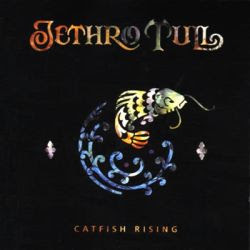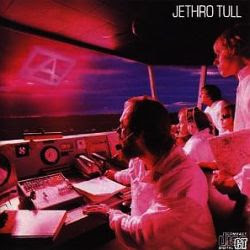
Basic info: released in 1991, charted #88 in US and #27 in UK
Line up: Ian Anderson (flute, acoustic mandolin, electric mandolin, electric guitar, acoustic guitar, harmonica, percussion, vocals, drums and keyboards) Martin Barre (electric guitar) Dave Pegg (bass, acoustic bass) Doane Perry (drums, percussion)
Guests: Andy Giddings (keyboards on tracks 1, 4 and 8), Foss Paterson (keyboards on track 10), John "Rabbit" Bundrick (keyboards on track 11), Matt Pegg (bass on tracks 1, 4 and 7), Scott Hunter (drums on track 7).
Tracklist: This Is Not Love / Occasional Demons / Roll Yer Own / Rocks On The Road /Sparrow On The Schoolyard Wall /Thinking Round Corners / Still Loving You Tonight / Doctor To My Disease / Like A Tall Thin Girl / White Innocence / Sleeping With The Dog / Gold Tipped Boots / Black Jacket And Tie / When Jesus Came To Play
Rating: 5 /10
visit http://www.collecting-tull.com/ for the most detailed overview of all things Tull!
Back in the 1991 "Catfish Rising" was hailed as Tull's long-desired return to the roots and, as such, stormed to very healthy sales in Europe. Ok, cool. But, what roots? Basically, "Catfish" is split in three general directions. And two of those have little to do with Tull roots. Namely, several bluesy tracks such as "Sleeping With The Dog" or pompous Whitesnake-inspired arena rock of "This Is Not Love" & "Doctor To My Desease" can hardly have any connection whatsoever to what Anderson & company are famed for. Tull did play blues in early days, but only because their first guitarist Mick Abrahams wanted to (and subsequently got kicked out of the band in order for them not to play blues anymore), and arena-rock... well, that is just so not-Tull, wouldn't you agree? Ok, I'm simplifyng to the bone, but the essence is more or less the same. So, the only thing vaguely in the vein of "back to the roots" fashion is approximatelly one third of the album, that being lil weird folky tunes like "Roll Yer Own" (again, kinda bluesy but cool and refreshing), "Like A Tall Thin Girl", "Gold-Tipped Boots Black Jacket And Tie" or "Sparrow On A Schoolyard Wall". Now, probably the worst part of the CD are arena-rockers, simply because it slightly sucks even when played by those who know how to do it, let alone in Tull's rendition. Bluesy tracks are acceptable, but painfully predictable and therefore pathetically pointless. The remaing stuff, at moments interesting, but nowhere near classic materials a la "Fat Man". And I'm not quoting "Fat Man" just because it's the first classic I remembered. Alas, all the non-blues or non-Whitesnakish music on "Catfish Rising" seems to be "Fat Man part II", so... Kinda lame. Plus, there's "Budapest part II" too, in shape of "White Innocence". Even lamer. Lastly, but maybe even most importantly, this is where Anderson's voice becomes absolutely unacceptable. His weak hoarse sounds almost like a parody and makes you sort of sad, remembering how good & expressive it used to be. Now, having said all the bad things, there is a positive spot as well. "Rocks On The Road" remains one of the best songs Tull penned in last 20+ years... Almost like a song Bob Dylan always wanted to write, but never managed, as boldly as such a statement might sound. But it's just one song, lost among the most terrible bunch of sounds ever produced by Jethro Tull... So... get a "best of" that includes it, and do yourself a favour of forgetting about "Catfish Rising".

